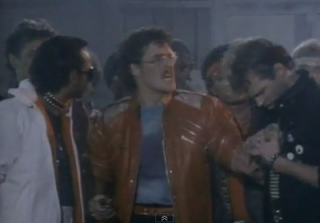If I were to start making grammatical and spelling rules, the list would get a bit long.
A preposition is a word you shouldn't end a sentence with. Or clauses. Or to which one might infer an infinitive that has been split. And starting sentences with a conjunction is bad. Misplaced modifiers are like the pen, lost by a man half full of green ink. Stay away from ad hominem arguments, you moron.
I would agree however, that it is best to be more or less specific, and that verbs has to agree with their subjects. And I'd recommend avoiding cliches like the plague. For clearer writing, always absolutely avoid annoying alliteration. The overuse of parentheses (however important or relevant) is often (or usually) overdone (by some, not all). Hyperbole should never be used; not in a million years...if I told you this once, I told you a zillion times. And, be very, careful, with overuse of, the comma.
Foreign words can be confusing, so make an a priori decision to not use them as they are not apropos. And I don't dig slang, so don't be gettin jiggy wit it. All generalizations are bad, so never make one. One-word sentences? Eliminate. And analogies are like what a bear does in the woods, so make like a tree and leaf them out. Comparisons are as bad as cliches. Two often to many people use the wrong form of to in a sentence or too.
The passive voice is not to be used in good writing. Never use a big word when a diminutive one would suffice. Such obfuscation of scrivenry is perplexing. Use words correctly, irregardless of what you've seen others do. And don't make words up, this groks the noobels out of some readers. Don't misuse 'like'. Someone asked me to explain that, and I was like, "Write 'says', not 'like', when you are quoting someone."
Excessive feakin' interjections are crap! And don't overuse the exclamation point!!!! I mean it! (Anybody want a peanut?) Stay away from rhymes and puns. I once used ten puns in a sentence to try to cause laughter. Unfortunately, no pun in ten, did. Puns are for children, not us groan ups. Plus, I don't feel that using an emotional descriptor to express a thought is a proper thing to do.
Go around the barn at high noon to avoid colloquialisms. And don't verb words; verbing weirds language. Proofread carefully to see if you any words out, or repeat unnecessarily repeat any words. And most of all, remember that dangling sentences
I should probably add that only a handful of these are original with me. Most of the others were picked up over the years in my reading of high-end academic journals, like the Calvin and Hobbes comic strip and such.
I should probably add that only a handful of these are original with me. Most of the others were picked up over the years in my reading of high-end academic journals, like the Calvin and Hobbes comic strip and such.







